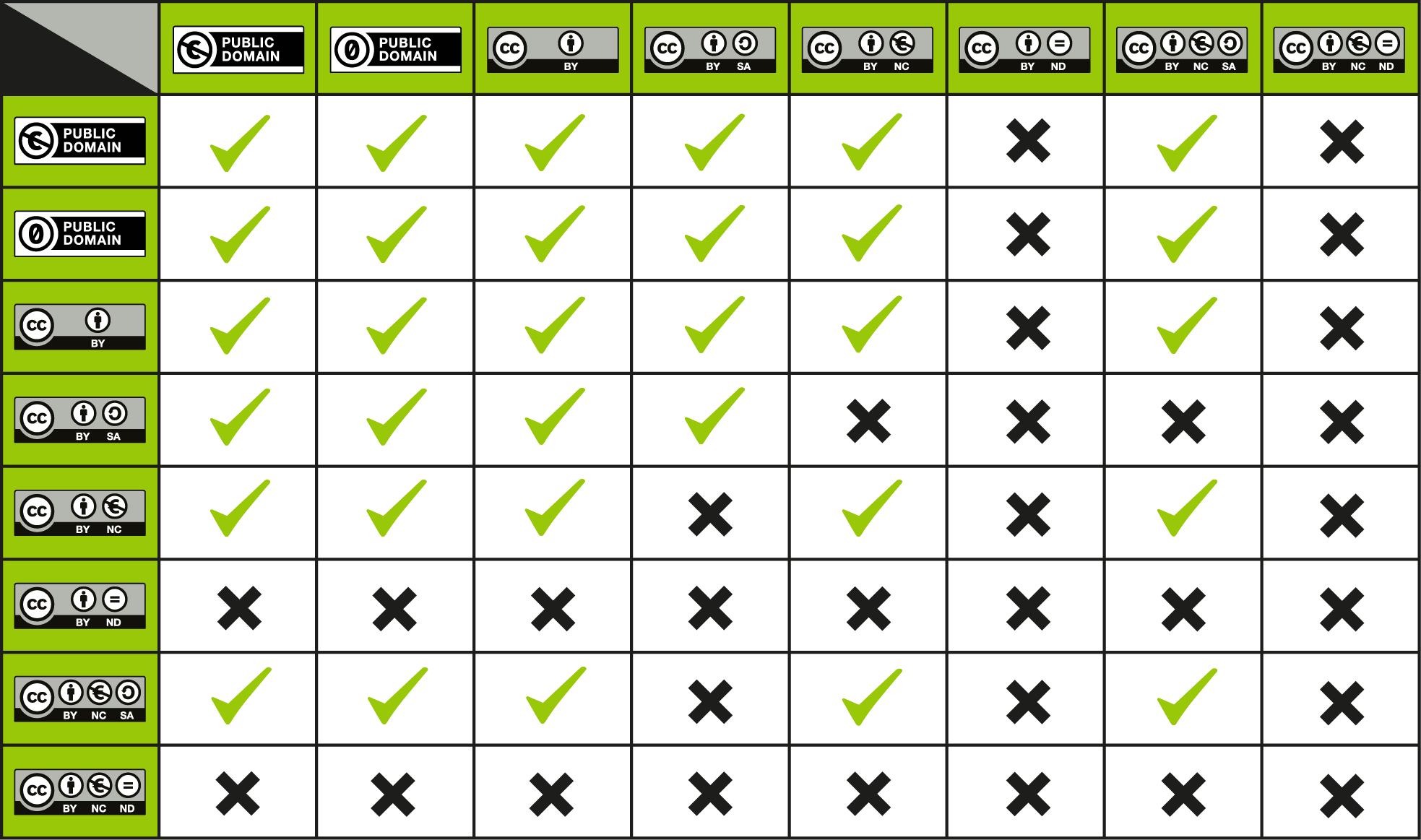
This page is openly licensed.
"Creating Adaptations and Remixes" © 2024 by Evangeline Reid is licensed under CC BY-NC 4.0 except where otherwise noted
When you create an adaptation or remix of another work, first consider:
Traditional copyright terms generally don't allow adaptations without seeking additional permissions. A typical commercial textbook could not be modified.
Most open licenses do allow adaptations, but any license that includes ND, meaning "no derivatives," does not allow adaptations. (Technically, adaptations for personal use are okay, but they cannot be shared.) CC BY-ND and CC BY-NC-ND are the most restrictive open licenses because of this.
Notably, ND licenses don't limit the creation of collections. They also don't override any copyright exceptions like fair use.
A remix or adaptation builds on one work to create something new. This new work should have an appropriate license applied by the creator (likely you!). Source material should also be attributed.
If a work is adapted that uses a SA (Share Alike) license, the new work must be licensed under the same or a compatible license. In practice this means that adapting a work licensed under CC BY-SA requires the new work also be licensed that way. The same applies to CC BY-NC-SA.
This chart helps determine which license to use for your adaptation by choosing the more restrictive of the two licenses on the works you are combining. While that technically isn’t your only option for your adapter’s license, it is best practice because it eases reuse for downstream users.
You will see some licenses with SA terms are not always a good fit for remixing.

"CC License Compatibility Chart" by Creative Commons is licensed under CC BY 4.0
The description of this chart was adapted from "Remixing CC-Licensed Work" (https://certificates.creativecommons.org/cccertedu/chapter/4-4-remixing-cc-licensed-work/) by Creative Commons. CC BY 4.0.
If the work was updated, remixed, or changed, that must be noted in the attribution.
*The title is not required in attribution for version 4.0 of the licenses, but it is still good practice to include when available.
TASL is from "Choosing and Applying a CC License" (https://certificates.creativecommons.org/cccertedu/chapter/4-1-choosing-and-applying-a-cc-license/) by Creative Commons. CC BY 4.0.
Some CC licenses include the NC or Non-Commercial element. You must ensure any use, including creating a collection or adaptation, complies.
The license term is based on how a work is used, not who the users are. For example, a non-profit could use a work in a commercial manner that would violate the agreement.
When using a work with a NC license, it's best practice to apply a NC license to the new work to ensure users respect the original work's license.